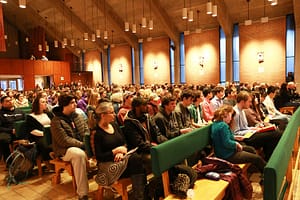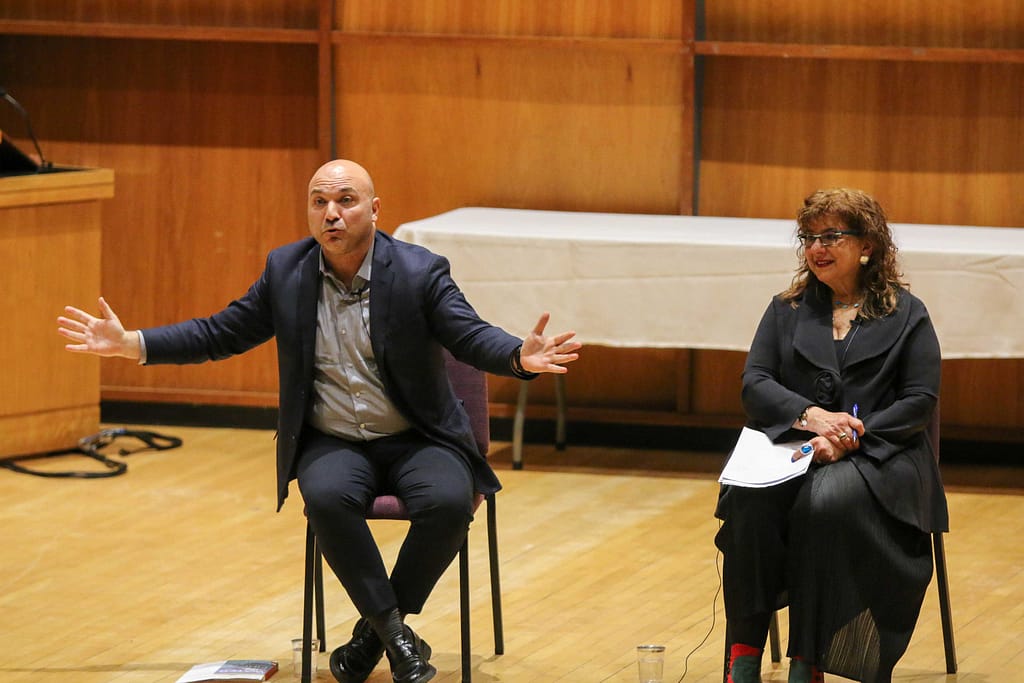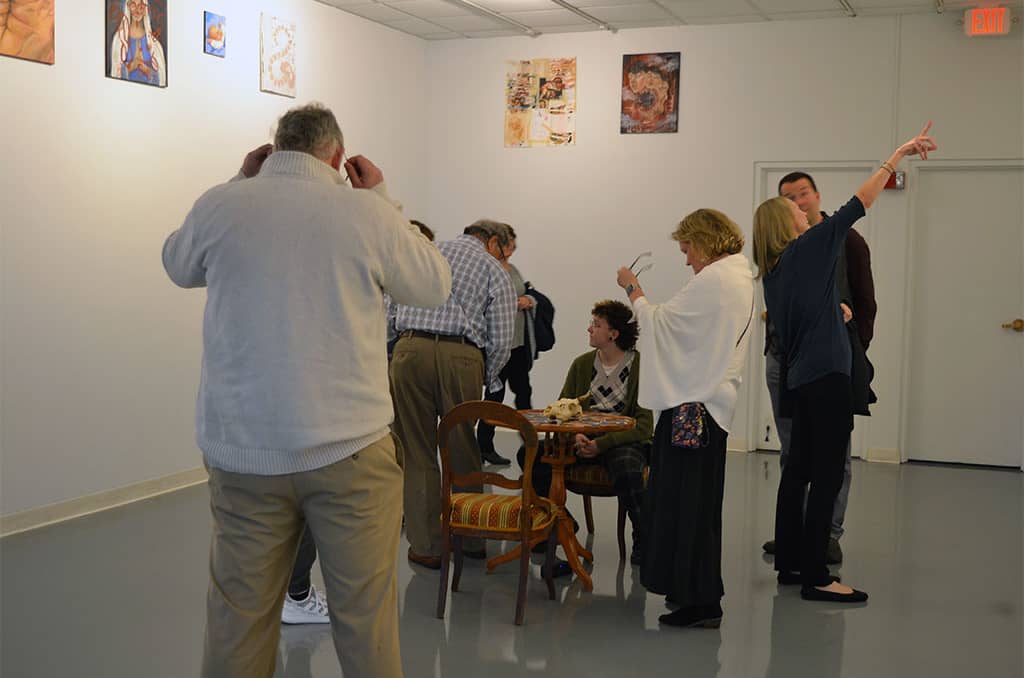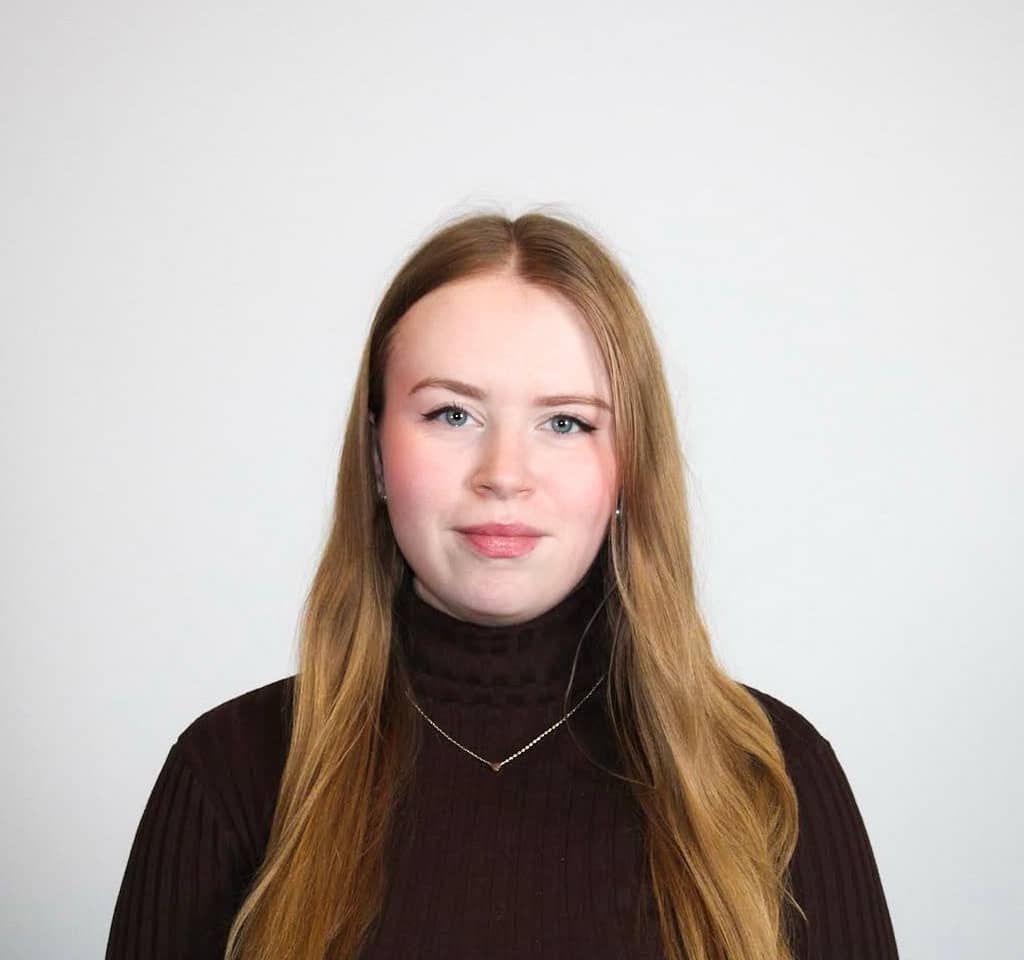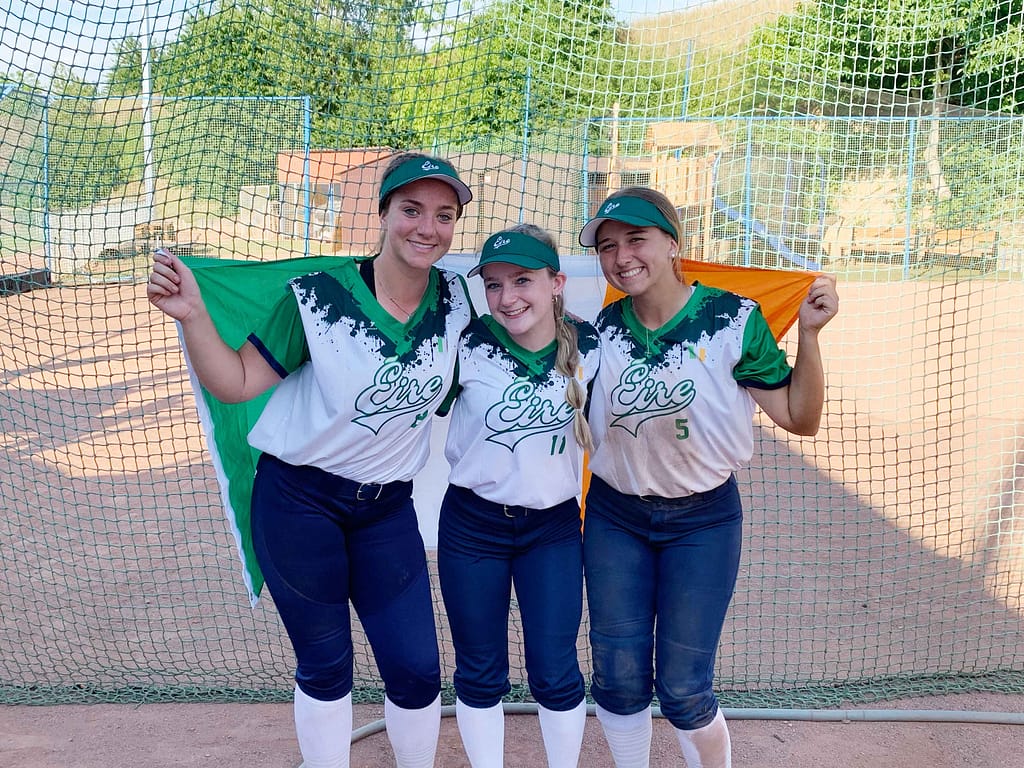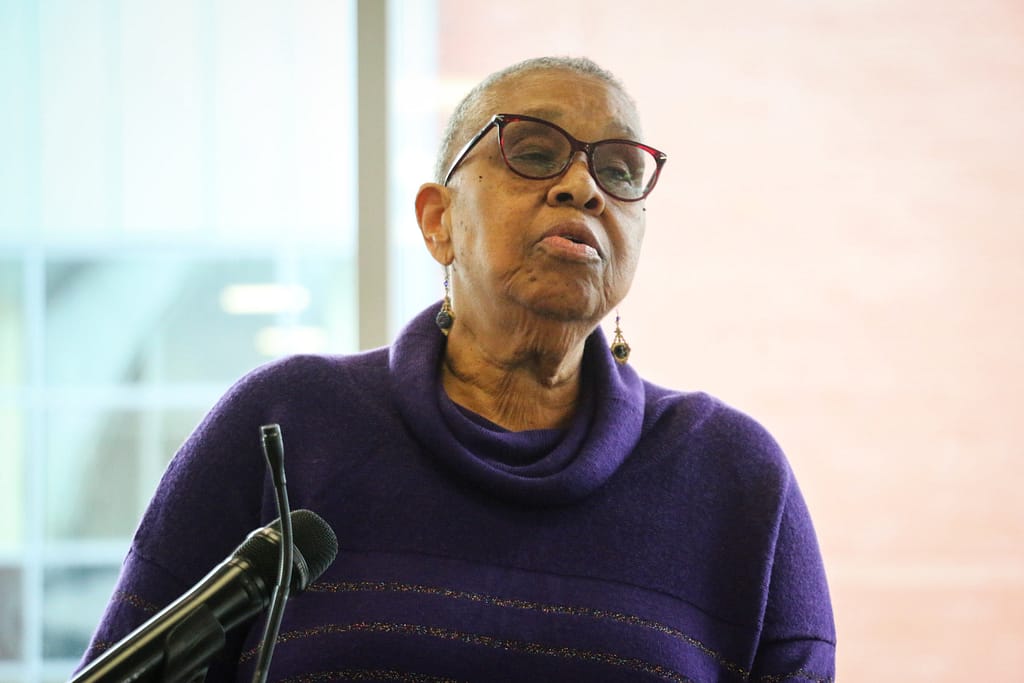MLK event stories stir hearts, urge action
At annual Chapel ceremony, keynote speaker Dr. Clifton Clarke chooses to love to 'burst veil'
Inspiring, poignant personal stories from the main speakers at the 28th Annual Martin Luther King Jr. Society Convocation in the Saint Michael’s College Chapel on Monday, January 20 awakened gut awareness of our common humanity, driving home the urgency of action rather than just talk against racism and bias on campus and in society.
Keynote speaker Dr. Clifford Clarke, student Kayla Erb ’22, and the event’s chief staff organizer Moise St. Louis of Student Life described moments from their lives that jarred awakenings for them about privilege, race and the tragically flawed historical majority narratives that tear at the social fabric. We all need such awakenings and cannot afford to postpone them, they asserted.
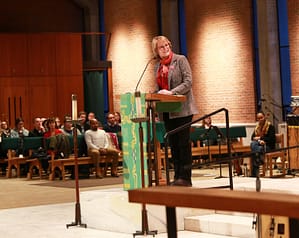
President Lorraine Sterritt speaks at Monday’s MLK Jr. Society Convocation in the Chapel. (All photos by Lauren Read)
Saint Michael’s President Lorraine Sterritt also addressed the several hundred people who packed the chapel, including many students, faculty, staff and members of the general public, saying, “Most importantly, we must act…to learn hard truths about things we have taken for granted … to open ourselves to each other, to reach out and to come together to make our shared principles a shared reality.” She reminded the gathered of deep direct involvement by the College’s founding Edmundite religious order in the early U.S. civil rights movement led by Dr. King and others, based on their core belief in equality of opportunity for all people.
Enhancing the mood of contemplation for the ceremony, which began at 4:30 p.m., were stark and haunting musical offerings from violinist Hannah Assefa, wife of a staff member, and student drummer-vocalist Daneroy Lawrence.
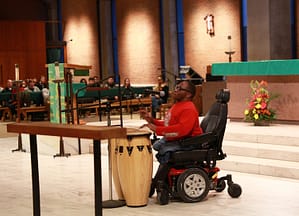
Student Daneroy Lawrence performs a musical piece at Monday’s chapel event.
Student MLK JR. Society officers in different roles moved the 90-minute ceremony forward and joined the dais party on the Chapel altar. Edmundite Fr. Brian Cummings offered the opening prayers.
The Theme for the Convocation was: “We Are What We Watch, Hear and Learn: Overcoming the impact of unconscious and conscious bias in classrooms and college campuses.” English Professor Lorrie Smith, who specializes in African-American literature, commented afterward that it was the day’s personal stories that she and perhaps others found most affecting.
Among the stories were those from keynoter Clarke, a prominent global scholar, pastor, educator, missionary, community leader and professor. Clarke’s keynote probed how his education in Britain accentuated that “whiteness was normal and desirable,” so that initially was all he knew. He described one early day in school there – noting he was innocently naïve to prejudice given the supportive enlightened home life with his Jamaican immigrant parents — until a teacher asked students to pair up and nobody would take his hand; later, a fellow student joked that he looked like an offensive racist caricature in an old children’s book, and everyone including the teacher laughed about it. It was then he realized that he was “living behind a veil that I couldn’t get beyond.” His later seminary studies centered on exclusively white thinkers, and only when he moved to Ghana and lived there a decade did he come to see how much more there was to the human story, something his own children were able to internalize more than he was, as they began to “pierce the veil.”
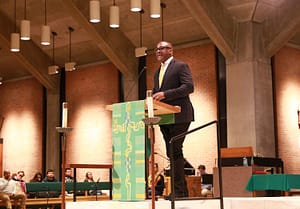
Keynote Speaker Dr. Clifton Clarke addresses the assembly late Monday afternoon.
Near the end of his well-received talk on “the fierce urgency of now” in acknowledging white privilege and its wounding biases, he marked it as a sign of at least some progress that when he took his young daughter to her first day of school decades later, a young white girl warmly took his daughter’s hand and led her to her seat.
Both Moise St. Louis — the associate dean of students and director of the Center for Multicultural Affairs and Services — and student Kayla Erb had personal stories illustrating how our initial wrong mindsets conditioned by media and circumstances can and must be challenged and changed for justice to advance in our lives and in the lives of those around us.
St. Louis told of his youthful passion growing up in his Haitian family for “cowboy movies” — films which, it took him time to understand, demonized Native Americans and whitewashed European colonizers’ oppression. “What I did not understand was that in many ways, the demonization and dehumanization of these populations were connected to my own demonization and dehumanization,” he said. Still today, St. Louis said, he struggles to “unlearn what I have learned” and “unmask the bias that stands for knowledge and analysis, and to question “our narrative of objectivity so well framed and protected by a system of oppression and exclusion.”
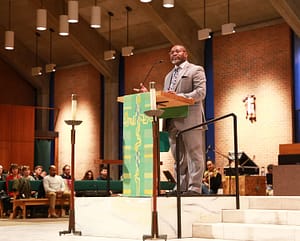
Moise St. Louis, associate dean of students/director of the Center for Multicultural Affairs and Services, speaks.
He invited the audience to “turn the gaze inward” — perhaps for the rest of their lives, to ask “How much have I learned and for what purpose?” Such examination must not be delayed, he said. “For what I have discovered is that people’s lives depend on it, your own liberation depends on it, your ability to grasp at a fuller piece of your own humanity requires it.”
Student featured speaker Kayla Erb also remembered back to childhood — in her case that meant growing up in challenging circumstances at home with her “single, low income, Puerto Rican mother,” an alcoholic father coming and going from their lives, and “a still broken family.” Yet, Erb was filled starting at perhaps age 8 with plans and dreams, and “became obsessed with careers,” she said – first convinced by the TV show CSI that she would be a science prodigy and become a forensic scientist. Other career obsessions followed: “hip hop performer, talk show host, breathtaking singer-songwriter, record-breaking athlete, anthropologist, archaeologist, astronomer, dreamer.” By middle school, with a new smartphone suddenly she began opening up to news of the world and friends and the wider world; but, she realized at age 13 or so how artificial those online friendships and identities were at the expense her true identity; desperate for popularity, she said, she had suppressed her accent and heritage, “and lost dreams and motivation.”
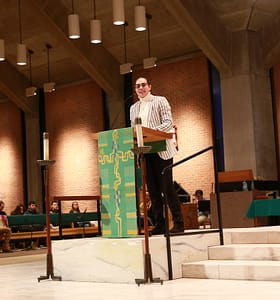
Student speaker Kayla Erb ’22 of Bronx, NY, shares stories from her life during the Monday assembly in the Chapel.
But a time came, she said, when “I decided that people would no longer decide who I am and who I stand up for.” She read more good books, dreamed now of titles “like CEO … executive, district attorney … woman.” She found herself feeling angry that he mother was accepting of a seeming lack of opportunity to dream of those things for herself, though being very supportive and hopeful about her daughter. “It’s hard to be grateful when so little is right,” Erb said, explaining that eventually, however, at Saint Michael’s under the guidance of the philosophy professor and campus activist for justice Katie Kirby, powerful truths emerged for her, from such intellects as Bell Hooks and Angela Davis, and as she grew to maturity, she joined hearts and minds with these “intelligent, rebellious women critical of our conditioned minds, societies, literature and most importantly, media.”
It led her to realizations about how we all have choices. “As I continue my journey here at Saint Michael’s, I choose to be more than what systems and society have defined me to be,” said Erb, challenging her peers to be critical of the systems they live within. “And no matter the outcome of your truth … Saint Michael’s and I will always…choose … You.”
The ceremony closed with student James Buitrago leading the Pledge of Nonviolence & Social Justice, as the audience all held lighted candles as is tradition.
The opening introduction to the Convocation was from Jaron Bernire, MLK Society co-president, who was a key force planning and organizing the week’s events, St. Louis said. MLK Society officer Tyler Santos introduced the keynote speaker, and Jacob Enbinder made closing remarks.
St. Louis said he always shares two quotes with his students: “The greatest threat to knowledge is not ignorance, but the illusions of knowledge.” And, “If you can’t imagine it, you can’t have it.”
The main speaker Dr. Clarke, who also had addressed faculty and staff at a noon luncheon in the Roy Room of Dion Family Student Center, said at the end of his Chapel talk, “Let’s not be divided. I’m going to choose to love you first, love you unconditionally as we work out the knots and kinks of what relationship is about.”
